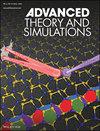基于吸收和相位消除的混合机制元表面,用于降低超宽带 RCS
IF 2.9
4区 工程技术
Q1 MULTIDISCIPLINARY SCIENCES
引用次数: 0
摘要
本文提出了一种基于相位抵消和吸收的混合机制,用于设计一种超宽带元表面,可在 6 至 64.7 GHz 范围内将雷达截面(RCS)降低 10 dB(171%)。在 15-64.7 GHz 的高频率下,通过相位抵消机制实现了 10 dB 的 RCS 降低,该机制是通过排列完美电导体 (PEC) 以形成不同高度的阵列结构来实现的。在 6-15 GHz 的低频下,通过设计旋转对称双图案吸收器的吸收机制可降低 10 dB RCS。耦合模式理论(CMT)被用来解释吸收机制。此外,研究还发现,通过两种不同的图案可获得 180° 的相位差,从而增强 28-35 GHz 高频段的 RCS 减小效果。最后,结合相位消除和吸收机制,通过将吸收器集成到阵列结构中形成超宽带 RCS 降低元面,实现了从 6 GHz 到 64.7 GHz 的超宽带 10 dB RCS 降低。所设计的元表面具有紧凑的尺寸(亚波长)和 0.105λL 的薄外形。本文章由计算机程序翻译,如有差异,请以英文原文为准。

A Hybrid Mechanism Metasurface Based on Absorption and Phase Cancellation for Ultra-Wideband RCS Reduction
This paper proposes a hybrid mechanism based on phase cancellation and absorption to design a metasurface with ultra-wideband 10 dB radar cross-section (RCS) reduction from 6 to 64.7 GHz (171%). At high frequencies of 15–64.7 GHz, 10 dB RCS reduction is achieved by a phase cancellation mechanism, which is realized by arranging a perfect electric conductor (PEC) to form an arrayed structure with varying heights. At low frequencies of 6–15 GHz, 10 dB RCS reduction is achieved by the absorption mechanism, which is realized by designing a rotationally symmetric dual-pattern absorber. The coupled mode theory (CMT) is used to explain the absorption mechanism. Additionally, it is found that a 180° phase difference is obtained by two different patterns to enhance RCS reduction in the high-frequency band of 28–35 GHz. Finally, the phase cancellation and absorption mechanisms are combined to achieve an ultra-wideband 10 dB RCS reduction from 6 to 64.7 GHz, which is realized by integrating the absorber into the arrayed structure to form the ultra-wideband RCS reduction metasurface. The designed metasurface has a compact size (subwavelength), and a thin profile with 0.105λL.
求助全文
通过发布文献求助,成功后即可免费获取论文全文。
去求助
来源期刊

Advanced Theory and Simulations
Multidisciplinary-Multidisciplinary
CiteScore
5.50
自引率
3.00%
发文量
221
期刊介绍:
Advanced Theory and Simulations is an interdisciplinary, international, English-language journal that publishes high-quality scientific results focusing on the development and application of theoretical methods, modeling and simulation approaches in all natural science and medicine areas, including:
materials, chemistry, condensed matter physics
engineering, energy
life science, biology, medicine
atmospheric/environmental science, climate science
planetary science, astronomy, cosmology
method development, numerical methods, statistics
 求助内容:
求助内容: 应助结果提醒方式:
应助结果提醒方式:


